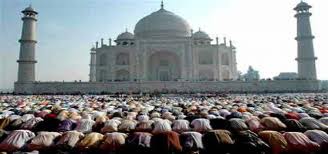 ‘Muslims too many to be called minority, it’s Parsis who need special attention’
‘Muslims too many to be called minority, it’s Parsis who need special attention’
Heptulla said she would have to consult Narendra Modi on whether he wants to “inherit” the Prime Minister’s 15-point programme for minorities.
Written by Abantika Ghosh | New Delhi | May 28, 2014 2:36 am
Minority Affairs Minister Najma Heptulla has said Muslims are too large in number to call themselves a minority and that it is the Parsis who need special attention, for they are a “minuscule minority”.
Talking to The Indian Express on the day she took charge of the ministry Tuesday, Heptulla also said she would have to consult Narendra Modi on whether he wants to “inherit” the Prime Minister’s 15-point programme for minorities.
Referring to the issue of Muslim reservation in jobs, she said “there is no provision in the Constitution for religion-based reservation”. The matter is in the Supreme Court.
“If you have six children it is always important to see what you can do for the weakest of them. So far as my ministry is concerned, of the six minority communities the weakest is clearly the Parsis. They are a minuscule minority that is so ‘ Muslims too many to be called minority, it’s Parsis who need special attention’ precariously placed that one needs to take care of their survival. Muslims really are too large in number to be called a minority community,” the minister told The Indian Express.
She said the very concept of minority and majority is relative and when talking about minorities it is imperative to understand that it is a term that encompasses many parameters, including language, apart from religion. Neither is there a ‘one-size-fits-all’ formula for the welfare of minorities.
The Ministry of Minority Affairs was set up in 2006 in the wake of the appointment of the Sachar Committee by the then prime minister Manmohan Singh to look into social, educational and economic conditions of Muslims in India. Though it caters to all six minority communities — the latest addition being Jains — Muslims have, since its inception, been a special focus area for the ministry.
Heptulla is yet to get a full lowdown on the ministry’s programmes and schemes, but one scheme that she is not inclined towards is the Prime Minister’s 15-point programme for minority concentration areas. “It was started by Indira Gandhi in 1980 and in these 34 years all that has happened is that successive prime ministers have merely ‘inherited’ it without any real thrust on implementation. I will have to discuss with Narendra Modiji whether he really wants to inherit it. It is striking that it has remained at 15 points all this while without one addition or deletion which should have happened if there was application of mind,” she said.
Asked about the non-implementation by the Gujarat government of a scholarship scheme for minority girls, she said: “It is all misinformation. The scheme has been implemented.” This matter too is currently in the apex court after the Gujarat government refused to pay its 25 per cent share in the scheme.
Heptulla made no bones about her aversion to the idea of reservation, maintaining that it cannot be a solution for anything. “I am not in favour of reservation. I have come this far without reservation. What is important is positive action to provide level playing field. Once we do that politically, socially and educationally they will be able to compete with the rest.”
Dispelling apprehension among Muslims about a government under the stewardship of Narendra Modi, she said such fears had been manufactured politically over the years and has survived because there is little information about the status of Muslims in Gujarat.
According to data from 2001 census, Muslims constitute about 13 per cent of India’s population.
Disclaimer: The opinions expressed within this article are the personal opinions of the author. World Hindu News is not responsible for the accuracy, completeness, suitability, or validity of any information on this article. All information is provided on an as-is basis. The information, facts or opinions appearing in the article do not reflect the views of World Hindu News and World Hindu News does not assume any responsibility or liability for the same.





